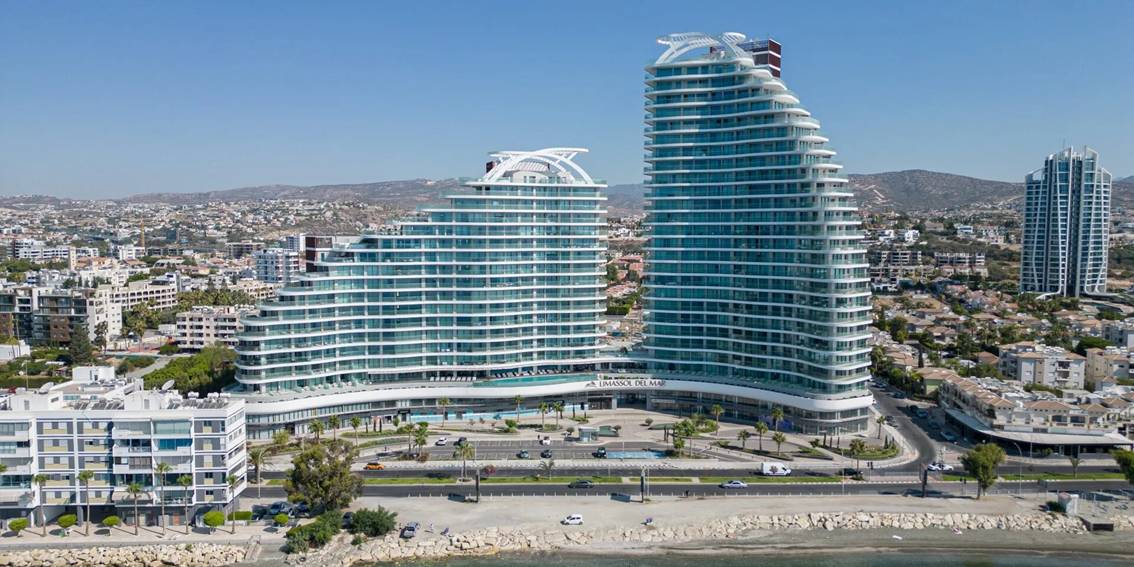New Law Out to Reduce the VAT
The new law to reduce VAT rate by 5% for main housing purchases, with specific conditions based on square meters and property value. Below are the details:
House/Apartment up to 130 sq.m. and valued at €350,000 or less: A 5% VAT rate applies.
Apartment/House between 130 sq.m. and 190 sq.m.: A 5% VAT rate applies to the first 130 sq.m., and a 19% VAT rate applies to the remaining area.
House/Apartment valued between €350,000 and €475,000: A 5% VAT rate applies to the first €350,000, and a 19% VAT rate applies to the amount exceeding €350,000.

For an apartment/house above 190 sq. m., VAT rate of 19% is charged on the total area. For an apartment/house over 190 sq.m and/or worth more than 475.000€, the standard VAT rate of 19% is applied to the entire price.
The above restrictions have been adjusted for persons with disabilities and large families with many children.
Real Estate Industry that obtained or planning Permission application has been or will be submitted by the 31st of October 2023 is excluded.
A duly completed application for the application of the 5% VAT rate was / will be submitted within three years from the date of entry into force of the new law (i.e. the application must be submitted before 06/15/2026)
Apartment/House above 190 sq.m. or valued above €475,000: A 19% VAT rate applies to the entire price.
VAT Down to 5% on certain purchases
Exceptions: The restrictions adjust for persons with disabilities and large families with many children.
Real estate projects with planning permission applications submitted by October 31, 2023, are excluded.
Applications for the 5% VAT rate must be submitted by June 15, 2026. Cyprus, like many countries, uses Value Added Tax (VAT) as a key revenue source. The standard VAT rate in Cyprus is 19%. However, a new legislative proposal aims to reduce the VAT rate to 5% on certain purchases. This move has sparkle discussions about its potential economic impacts.

Rationale Behind the VAT Reduction
The government aims to stimulate economic activity and support household incomes by lowering the VAT rate. Reducing costs for goods and services encourages consumer spending, which can drive economic growth. This is especially important after the economic challenges caused by the COVID-19 pandemic, which led to reduced consumer spending.
The new law to reduce VAT also targets struggling sectors crucial to the economy. For example, the hospitality and tourism sectors, vital to Cyprus, suffered during the pandemic. Lowering VAT on these services can make Cyprus more attractive to tourists and boost local spending.
Expected Benefits: Economic Stimulation
A lower VAT rate increases disposable income for consumers, potentially raising demand for goods and services. Higher consumer spending can lead to increased sales, job creation, and business profits, creating a positive economic ripple effect.
Support for Vulnerable Sectors
Targeting specific purchases with a VAT reduction can directly support struggling sectors. For instance, applying the lower rate to essentials like food or healthcare products can ease the financial burden on low-income households, improving their quality of life.

Competitive Advantage
The new law to reduce VAT on certain goods and services can make Cyprus more competitive compared to other European destinations. This advantage can attract more tourists and investors, boosting economic growth.
Potential Challenges: Fiscal Impact
Reducing the VAT rate may decrease government revenue, as VAT is a significant income source. This could lead to a budget deficit unless offset by higher taxes or reduced public spending, both of which have downsides.
Implementation and Compliance
Implementing a new VAT rate requires significant administrative effort. Businesses must update systems and train staff to comply with the new rate, which can increase costs. The government must also ensure proper oversight to prevent errors or misuse.
Economic Inequality
While the VAT reduction aims to benefit all consumers, higher-income households may gain more due to their greater disposable income. To address this, the government may need complementary measures to ensure equitable benefits across income groups.
Conclusion
The proposal to reduce the VAT rate to 5% on certain purchases aims to stimulate economic growth and support vulnerable sectors in Cyprus. While the potential benefits, such as increased consumer spending and sectoral support, are significant, the government must carefully manage fiscal impacts and ensure effective implementation. If executed well, this change could boost the Cypriot economy, fostering resilience and long-term growth in a post-pandemic world.
You May Also Like This
Recent Developments Shaping the Future: https://anatolikilemesou.com/?p=721




